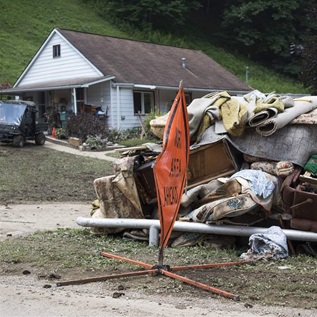Governor Jindal Announces LA Selected for Pew Partnership to Reform LA Criminal Justice System
The following press release was issued by the office of Gov. Bobby Jindal. For more information contact Jennifer Laudano, 202.540.6321.
Today, Governor Bobby Jindal was joined by Ricky Babin, Chairman of Louisiana's Sentencing Commission, Senate President Joel Chaisson, House Speaker Jim Tucker, Louisiana Sheriffs' Association Executive Director Hal Turner and other judges, district attorneys, sheriffs to announce that Louisiana was selected for a new partnership with the Pew Center on the States' Public Safety Performance Project, which will fund research on Louisiana's criminal justice system to develop a set of policies to reform the system and make it more effective and efficient.
Governor Bobby Jindal said, “With this partnership we'll have a better understanding of what policies work, and which ones won't so we can do an even better job of decreasing recidivism in Louisiana. I'm proud that our state was selected by Pew because of the progress we have already made in streamlining our judicial system.”
Adam Gelb, Director of the Public Safety Performance Project of the Pew Center on the States said, “Policy makers across the country are recognizing that prisons, just like any government spending program, need to be put to the cost-benefit test to make sure taxpayers are getting the best possible public safety return on their dollars. There is now a strong commitment from Louisiana's top leaders to take a hard look at the numbers here, and we are confident this bipartisan, data-driven effort will produce a plan that improves public safety while lowering costs."
Under the new Pew-Louisiana Partnership, Pew, along with its partners the Vera Institute of Justice and the JFA Institute, will focus on four key areas:
-
Analyzing Louisiana's criminal justice system's data to better determine what is driving the state's prison population;
-
Determining cost drivers in the system;
-
Comparing the state's sentencing and corrections policies with nationally recognized evidence-based best practices; and
-
Working with the Louisiana Sentencing Commission to develop a set of recommendations to improve public safety in Louisiana.
Pew and its partners have worked to craft similar reform initiatives with over 20 other states, including Alabama, South Carolina and Texas. In Texas in 2007, for example, officials thought they would need to expand their corrections system by $2 billion. After the study, they determined they would have better outcomes if they instead invested in residential treatment programs and alternative sentencing: this transition flat-lined prison growth in the state, saving Texas $500 million in the first two years. Pew reports that if this trend continues, the entire $2 billion investment would not be needed. In South Carolina, legislation was passed based on Pew research to address parole supervision for violent and non-violent offenders. This reform is projected to save the state up to $240 million over five years, while decreasing the need to create and operate new prison beds by 1,786.
Governor Jindal, along with the Speaker, Senate President, Chief Justice, Chairman Wooton and Sec. LeBlanc sent a letter to Pew's Public Safety Performance Project last September, collectively expressing the state's interest in receiving support from Pew on our state's sentencing and corrections issues. The Pew Partnership the Governor announced today is a result of this original request.
Through 2011, Pew and the Sentencing Commission will be actively researching and helping construct key initiatives to reform the state's criminal justice system. Research is made possible through funding and support provided by the Pew Center on the States and the Department of Justice's Bureau of Justice Assistance. Launched in 2006, Pew's Public Safety Performance Project seeks to help states advance fiscally sound, data-driven policies and practices in sentencing and corrections that protect public safety, hold offenders accountable and control corrections costs. The Governor said the administration will have some legislation ready for this session based on their recommendations.
Governor Jindal also highlighted the state's efforts to target recidivism, including a 2009 initiative that expanded re-entry services to non-state prisoners who otherwise would not have had access, and the establishment of day reporting and reentry facilities in Caddo and Orleans parishes. Statewide, comparing first and second year recidivism from 2006 to 2009, Louisiana has seen a 33% decrease in recidivism. Louisiana has also recently seen its first decline in the growth of prison admissions in decades, which is further evidence that our reentry strategies are working.
Senator Joel Chaisson said, “This partnership means that at no cost to tax payers, our state's corrections system will have a thorough analysis of all its parts that will provide legislators with effective recommendations for improving safety in Louisiana. If we can use state resources more effectively to revamp how we punish and reform offenders, then we're improving the quality of life for everyone in the state.”
Speaker Jim Tucker said, “I'm proud that Pew selected Louisiana for its in-depth analysis of our state's prison system. For this to work, Pew required a legislature that works together, a policy environment that's ripe for change, and a state whose three branches are cohesive and effective. We'll see some new ideas from this study that will make our corrections system more effective at how it uses tax dollars and reforms offenders, which will benefit all of Louisiana.”
Chief Justice Catherine "Kitty" Kimball said, “Louisiana's criminal court judges labor every day in their courtrooms to establish the truth in a case and seek justice. It is essential that the judges' perspective be part of this inter-branch effort, aimed at finding more effective and efficient ways to improve public safety and enhance the rule of law. The judicial branch is glad to be a contributor to this important work.”
Louisiana Sentencing Commission Chair Ricky Babin said, “This is great news for the Sentencing Commission as we work to decrease recidivism rates in the state. We'll work closely with Pew, the legislature and the Governor's office to make sure this collaborative effort is put into action, so we can discover and apply innovative solutions towards our criminal justice system”
Colonel Mike Edmonson said, "Partnerships among law enforcement agencies, the judicial system and the correctional system are critical to ensure public safety in Louisiana. We must be efficient and effective in our efforts to keep our citizens safe. I am encouraged by The Pew Center's selection of Louisiana to conduct research as we continue to work collectively to move Louisiana forward."
Secretary Jimmy Le Blanc said, “This collaboration comes at an opportune time as Louisiana ranks number one worldwide in per capita incarceration and faces challenges of managing state services in one of the most difficult budget years in decades. The partnership with Pew and Vera will support the Sentencing Commission in working with all stakeholders to develop short term and long term solutions that will enhance public safety, while reducing recidivism and generating a better return on Louisiana's public safety investments.”
Executive Director of the Louisiana Sheriffs' Association Hal Turner said, “How we manage our prisons and work to reform offenders is key to making the streets of Louisiana safer, and any support law enforcement officials can get in that fight is greatly appreciated. I'm glad that Governor Jindal worked to bring this study to Louisiana so we find ways to make our prisons and parole systems more effective.”
In 2009, Louisiana had the highest rate of incarceration in the United States: 881 prisoners per 100,000 residents. The U.S. national average was 502 prisoners, and Mississippi was second at a rate of 702 per 100,000 residents. A total of 95 percent of Louisiana offenders entering the state's criminal justice system will return to our communities. The state's overall five-year recidivism rate is about 48 percent.











